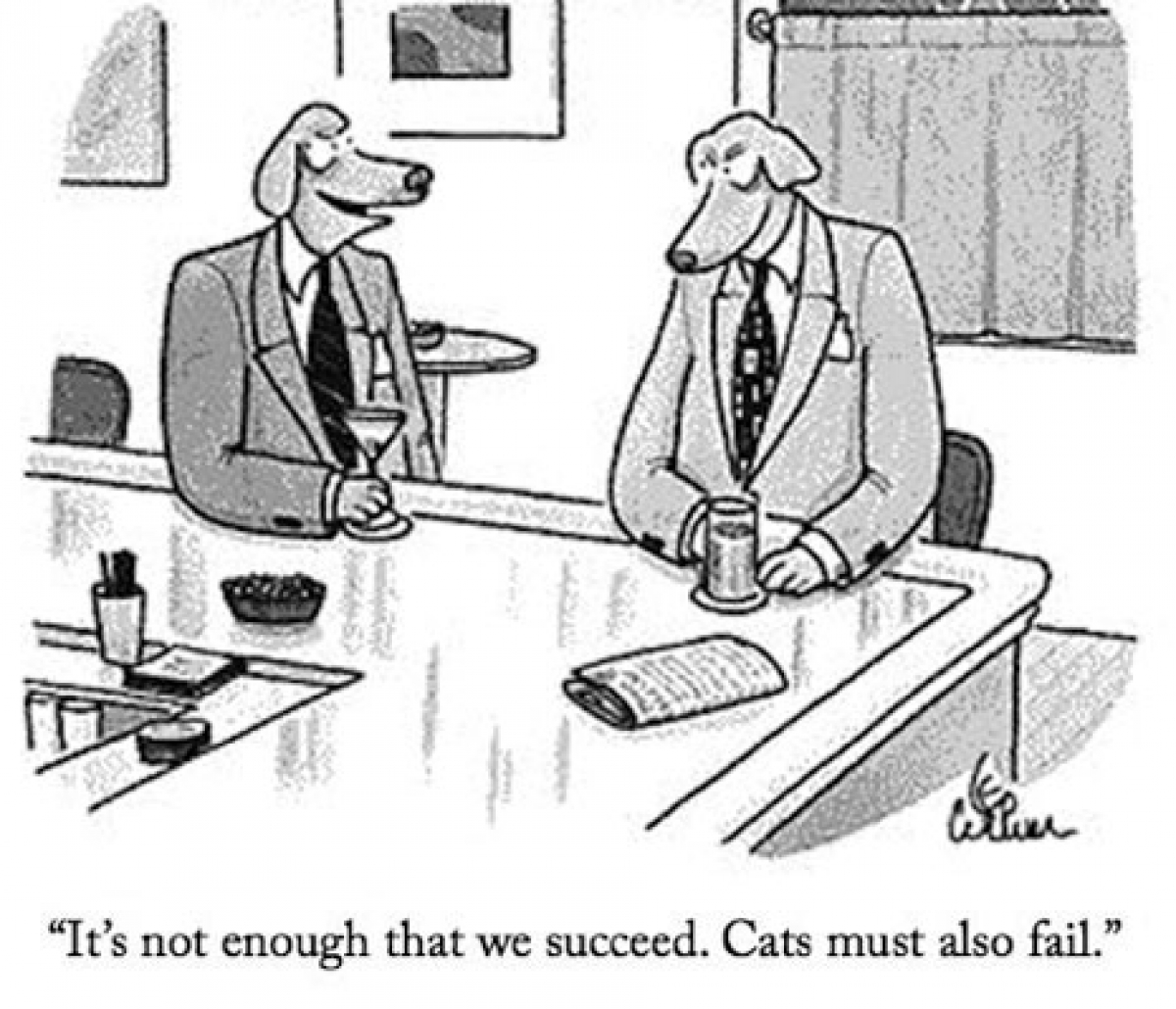Schadenfreude is basically the opposite of compassion.
Annie Duke*
Have you ever taken pleasure in someone else's misfortune? We mostly see our own success as relative to someone else. If we succeed, but the person next to us succeeds more, then to our minds their success has diminished the value of our own progress. The inverse is true as well. Not only do we see the success of others as somehow taking away from our own, we also see their misfortune as a positive outcome - positive for us anyway.

It's a hard feeling to get passed.
The Germans have a word for this feeling: schadenfreude.
When the other person fails, it's easy for us to see that as a signal of our own superiority. We think things like, "How could they have not seen it coming?" Or, "If I was in that situation, I would have handled it much better." But questions like these come from knowledge the person didn't have - indeed couldn't have had - at the time: the outcome of their decision.
No doubt, people make bad choices. Some choices are obviously bad before hand, but some choices are only bad in hindsight. In the moment, we never could have guessed how that decision would play out.
This is just as true for the person standing next to you as it is for you.
Therefore let anyone who thinks that he stands take heed lest he fall. No temptation has overtaken you that is not common to man...
1 Corinthians 10: 12-13a ESV
We all make decision under uncertainty. Nobody is exempt from this truth. We should endeavor to remember this when we are assessing the decision of other people.
No temptation overtakes us except those common to mankind, Paul writes. We may tell ourselves this as a way to find comfort when we err, but do we identify with the failings of others? Do we see how other people fail as a confirmation of their humanity, or only as confirmation that we are better?
Once we internalize just how universal the struggle is, it makes it easier to have compassion on those around us who fall. After all, we all share the same uncertainty about what will happen tomorrow. Not every failing is a moral failure, nor are they always about lack of skill and competence.
Sometimes we make decisions which simply don't work out.
We don't have to excuse behavior or outcomes, but understanding that some things just go wrong may help us be slow and more thoughtful in our assessment of the other person.
Paul's advice is humility. He says to be very careful when you think you are standing, because that is when people fall. Often we can only tell we are up when the other person is down. This is exactly the time to take heed and have some compassion on the other person.
*Duke, A. Thinking In Bets. pgs 102-103
Found in:
Uncertainty
